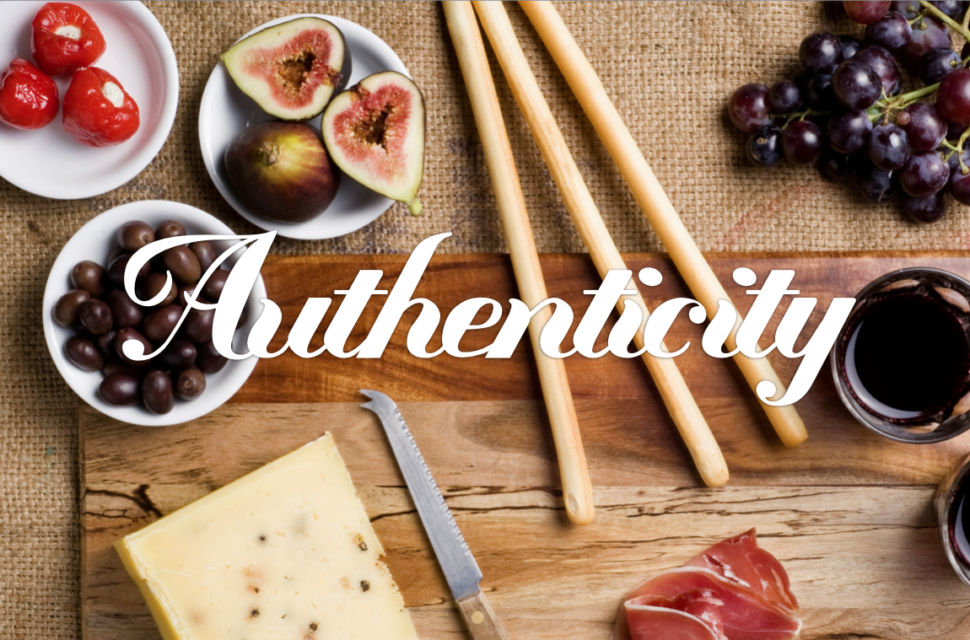Authenticity in Branding

At Traffic, part of our strategic process involves helping clients define what their brands stand for by defining their brand value proposition. As part of this process, we encounter many brands with a pre-existing list of values that they firmly stand by. The most frequently listed include quality, integrity, trust, safety, innovation, authenticity, transparency and other similar, quite expected, values.
In reality, these basic values should be inherent in every brand, and whilst they are of utmost importance, their somewhat generic nature means that they don’t help differentiate one brand from another. Surely, if you don’t value quality or safety, you shouldn’t be in business? So, if the most common brand values go without saying, how can we better understand and define our values to demonstrate a real point of difference?
On one hand, we can build upon our basic values with additional, more exclusive values. At Traffic, we determine these through workshops, where we use projective techniques to explore a range of proof points to tease out themes. Traditionally, there will be a range of values that are emblematic of an industry. For example, architects will instinctively value creativity and a tech brand will naturally value innovation. We don’t ignore these values, but probe our clients to uncover additional values that truly set them apart – a construction company that values artistry, or a cookware brand that values rebellion. These are the values that characterise the brand and give us a talking point upon which we can build a real point of difference.
Another way of giving more meaning to our values is to dig down a little deeper into the existing values. One such value that comes up frequently is ‘authenticity’. We recently conducted desk research for a particular brand to help determine what type of ‘authenticity’ they stand for. We found a number of academic research articles with illuminating results. Perhaps the most interesting was a journal by Carroll, G.R. & Wheaton, D.R. (2009), who discuss the organisation construction of authenticity by focusing on contemporary food and dining in the US. Carroll & Wheaton give real meaning to ‘authenticity’ by breaking it down into a number of forms and as a result, render the quality more useful to brands.
Authenticity, according to Carroll & Wheaton, occupies a central position in contemporary culture and therefore, has both social and economic importance. What becomes perceived and labelled as “authentic” imbues an object or service with deeper meaning to its consumers. In other words, authenticity carries with it an almost sacred, cultural type of interpretation that has a direct correlation with the perception of quality, which in turn conveys value.
However, authenticity is a social construct and as a result, means different things to different people. For example, while intense interest in authentic food and dining resides primarily among educated, upper middle class people, the authenticity of hip-hop music is a matter of great concern to fans typically of a younger age set, from a range of socio economic backgrounds. As the desire for authenticity permeates all cultures and is largely a personal construct, brands must delve a little deeper into defining their form of authenticity and additionally, the type of authenticity that matters most to their core customer base.
Carroll & Wheaton explain that authenticity can come in four forms, Type Authenticity, Craft Authenticity, Moral Authenticity and Idiosyncratic Authenticity. The crucial extract is that to be truly authentic a brand must have organisationally constructed forms of authenticity, which enables them gain more attention, gather stronger appeal, convey better credibility and resonate for longer. To do this, we must determine the true meaning of ‘our’ authenticity. At Traffic, we’ve used these forms to better understand what type of authenticity our clients brands stand for, with great success to date.
To conclude on our original topic of brand values, authenticity is just one value discussed in this post, but each value is equally important. To develop a set of values that give real meaning to the brand and truly shape the brand value proposition in a manner that differentiates one brand from competitors, one must delve deeper into the meaning of that value as distinct from the category in which the operate. This is something that we specialise in.
Carroll, G.R. & Wheaton, D.R. (2009) The organizational construction of authenticity: An examination of contemporary food and dining in the U.S. Research in Organizational Behavior. Vol. 29,Pages 255–282